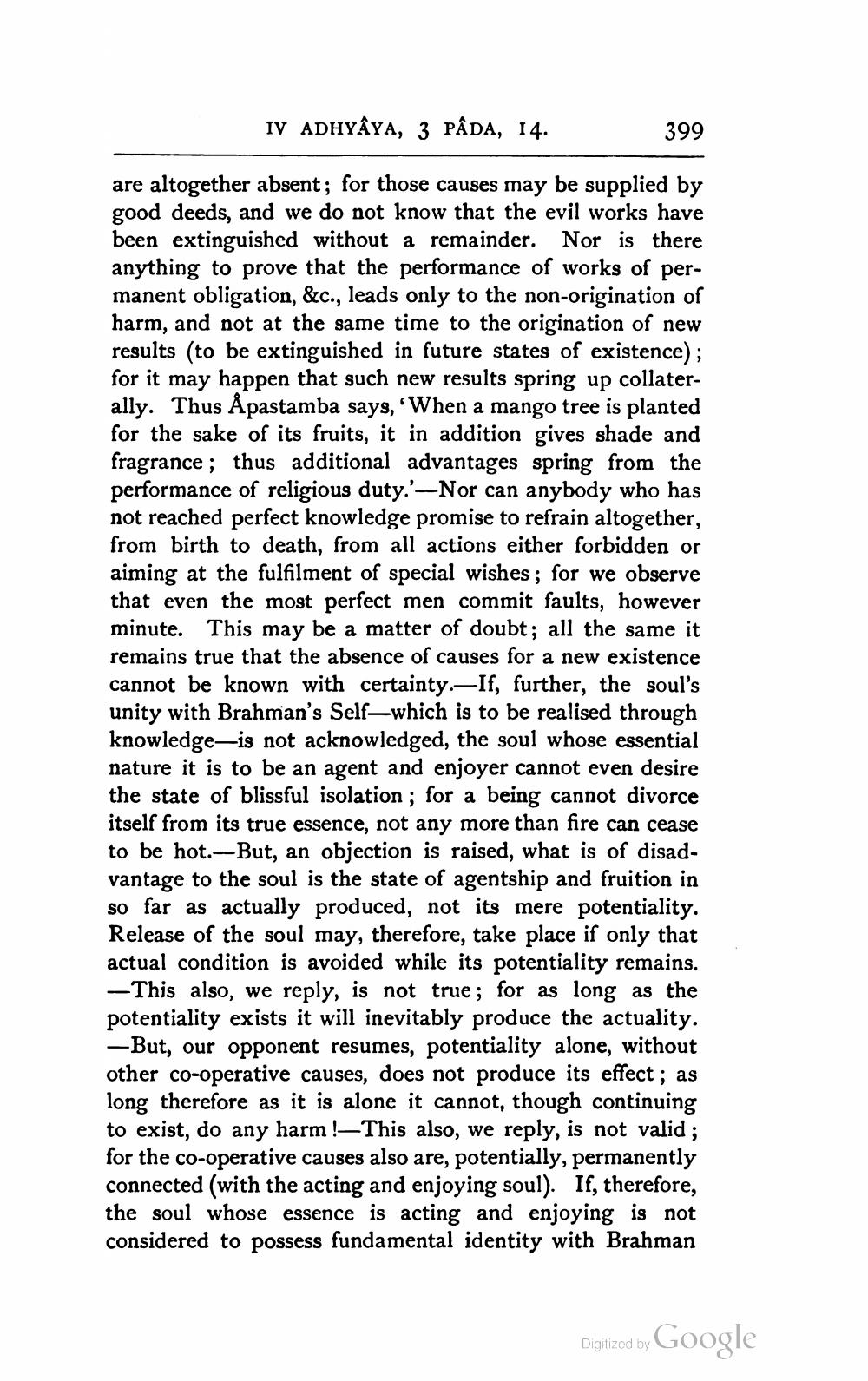________________
IV ADHYÂYA, 3 PÂDA, 14.
399
are altogether absent; for those causes may be supplied by good deeds, and we do not know that the evil works have been extinguished without a remainder. Nor is there anything to prove that the performance of works of permanent obligation, &c., leads only to the non-origination of harm, and not at the same time to the origination of new results (to be extinguished in future states of existence); for it may happen that such new results spring up collaterally. Thus Åpastamba says, 'When a mango tree is planted for the sake of its fruits, it in addition gives shade and fragrance; thus additional advantages spring from the performance of religious duty.'-Nor can anybody who has not reached perfect knowledge promise to refrain altogether, from birth to death, from all actions either forbidden or aiming at the fulfilment of special wishes; for we observe that even the most perfect men commit faults, however minute. This may be a matter of doubt; all the same it remains true that the absence of causes for a new existence cannot be known with certainty.--If, further, the soul's unity with Brahman's Self—which is to be realised through knowledge—is not acknowledged, the soul whose essential nature it is to be an agent and enjoyer cannot even desire the state of blissful isolation; for a being cannot divorce itself from its true essence, not any more than fire can cease to be hot.-But, an objection is raised, what is of disadvantage to the soul is the state of agentship and fruition in so far as actually produced, not its mere potentiality. Release of the soul may, therefore, take place if only that actual condition is avoided while its potentiality remains.
-This also, we reply, is not true; for as long as the potentiality exists it will inevitably produce the actuality.
-But, our opponent resumes, potentiality alone, without other co-operative causes, does not produce its effect; as long therefore as it is alone it cannot, though continuing to exist, do any harm !—This also, we reply, is not valid; for the co-operative causes also are, potentially, permanently connected (with the acting and enjoying soul). If, therefore, the soul whose essence is acting and enjoying is not considered to possess fundamental identity with Brahman
Digitized by
Digized by Google




